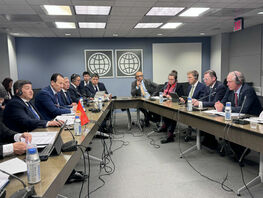Governments in Central Asia have failed to consistently uphold human rights obligations in their responses to the COVID-19 pandemic by limiting access to information about the spread of the virus and implementing restrictions in discriminatory or arbitrary ways. The international human rights organization Human Rights Watch said in a statement.
Turkmenistan and Tajikistan have yet to acknowledge the existence of COVID-19 cases in their countries. Kazakhstan, Kyrgyzstan, and Uzbekistan all moved in March to acknowledge cases of COVID-19 and have taken important steps to limit its spread and protect their citizens, including those affected economically by lockdowns and business closures.
But these governments have used restrictions put in place in response to the crisis to target journalists, healthcare providers, and activists, and have carried out quarantine measures in ways that have at times proven arbitrary and disproportionate.
«All Central Asian governments have obligations to protect their citizens’ right to health by providing accurate information about COVID-19,» said Hugh Williamson, Europe and Central Asia director at Human Rights Watch. «They should not use restrictions to muzzle journalists, healthcare providers, and others attempting to inform the public or protect against rights violations.»
Central Asian governments should ensure that citizens have access to timely accurate information about how to prevent the spread of COVID-19. They should ensure that restrictions responding to the pandemic are not carried out in ways that violate or undermine protection of rights.
In Kyrgyzstan, neither independent media outlets nor lawyers have been granted permits to pass police checkpoints, interfering with their ability to do their jobs. Kyrgyzstan, Kazakhstan, and Uzbekistan have all threatened criminal sanctions or opened investigations into people for spreading «false information» about the virus, including doctors concerned about inadequate protective equipment.
«Any restrictions that governments in Central Asia enforce in response to the COVID-19 pandemic should be proportionate and solely aimed at protecting public health during the current pandemic,» Williamson said. «Human rights should be respected while the emergency measures are in place, and during any future responses to the virus.»






